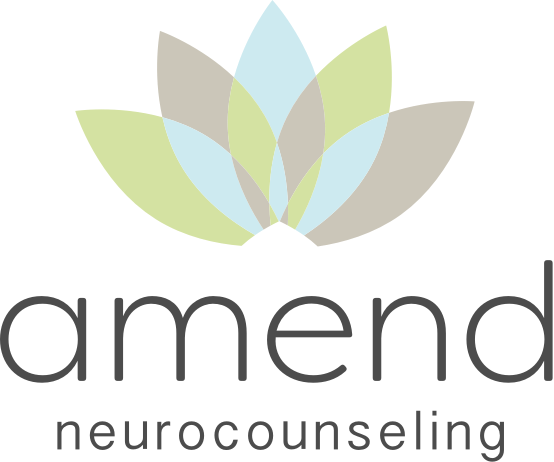Getting the Most Out of Neurofeedback Sessions
Here are some tips for helping your brain “catch” as much of the training as possible to maximize your benefits and potentially shorten your overall number of sessions. Follow these suggestions so that you don’t waste your money!
Value Sleep
The brain makes most of its changes during sleep, so shortchanging it in the sleep department doesn’t make sense. A child should be getting about 10-12 hours, an adolescent needs at least 9, and adults need 7-8. Ask for a sleep hygiene sheet if you have difficulties with sleep.
Limit screens
Screens overstimulate the brain and the body just by being on, regardless of what the screen is being used for. Playing games and hanging out on social media releases chemicals like dopamine that can make the brain feel like it’s on drugs. It only takes about 30 minutes for this effect to be felt in children!
No screens at least 30 minutes before and 30 minutes after a NF training. Doing so may make your neurofeedback less effective or ineffective.
We encourage no screens in bedrooms and bathrooms – especially for our adolescent and child clients. Adults do not handle the “pull” of screens very well, and our younger ones certainly don’t fare any better. Keeping screens only in family areas encourages more accountability and helps with healthy sleep patterns.
If you’re interested in learning more about how screens affect brains and behavior check out this article by Susan Dunaway.
Family Changes
Stress can undo the work of NF. If you are in the midst of stressful family change or loss or know that it is coming, then this may not be the time to start NF. However, it could be a great time to do mind-body work, individual, or marriage and family therapy with us. During our evaluation sessions we will determine if NF is a good fit - but only if we have all the information. If you believe a big change in on the horizon, discuss it with your clinician so you can decide together if this is the right time for neurofeedback.
DIET/EXERCISE
Did you know there is more serotonin (a chemical you need to feel happy and content) in your gut than in your brain? Getting your gut healthy is a huge part of mental health. This may mean adding supplements, changing diet, discovering if there are allergies/food sensitivities, etc. Your doctor, nutritionist or integrative specialist can best address these issues. Making these changes prior to beginning training can often help the brain change faster.
Getting regular cardiac exercise will also help the brain change faster. Cardiac exercise increases blood flow and oxygen to the brain, which work to help heal the brain and help it work more efficiently.

